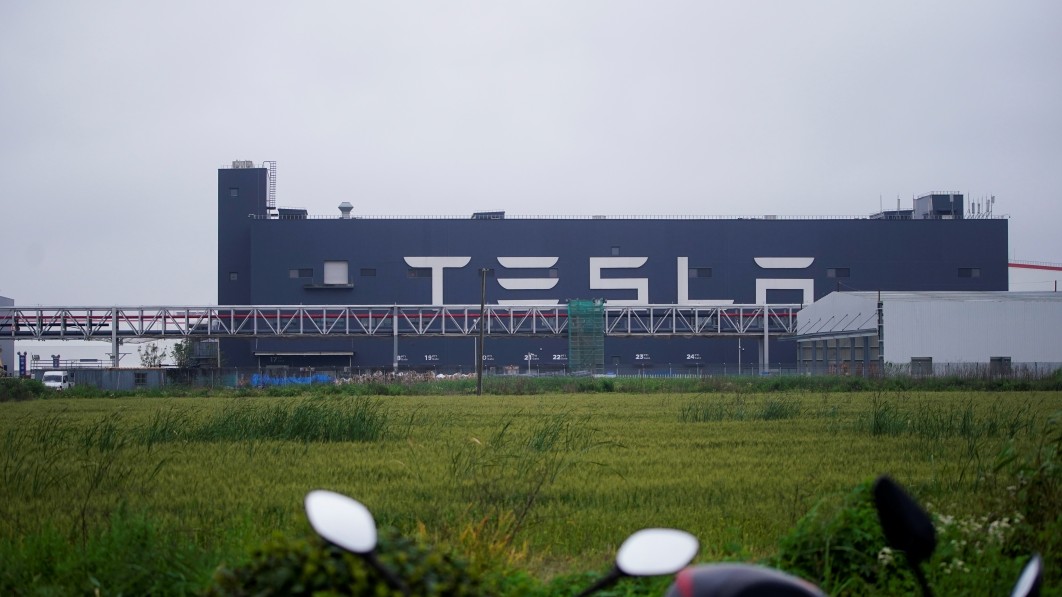Tesla Inc’s new vehicle assembly system, which caused an immediate buzz when it was unveiled in March, has sparked a debate among auto manufacturing experts as to whether the CEO by Elon Musk the so-called “unboxed” process is radical, revisionist, or derivative – or all of the above.
Musk believes the company needs to fundamentally rethink conventional manufacturing methods in order to build more convenient and profitable products. electric vehicles in larger volumes.
Investors have been waiting for Tesla, the world’s most valuable automaker, to announce what is perceived to be the company’s holy grail: an electric vehicle priced below $30,000. Right now, the least expensive Tesla starts at more than $40,000.
The unboxed assembly process is intended to allow Tesla to hit that ambitious price target.
One expert described the process as “revolutionary”, with the potential to upend the traditional moving assembly line of the automotive industry. Others have wondered whether a process that builds on previously tested techniques such as modular assembly could help significantly reduce manufacturing costs.
When the new process was revealed at Tesla’s March 1 Investor Day, executives said it would make the company’s next-generation vehicles “significantly simpler and more affordable.”
Officials said the unboxed process could cut production costs in half and reduce the factory footprint by 40%. The goal, the company said, is to “build more vehicles at a lower cost.”
Assembly of new techniques won’t be fully tested until the system is installed in late 2024 at Tesla’s new $5 billion plant in Monterrey, Mexico, where the company plans to build a new generation of EVs under $30,000.
Several big questions loom: What kind of impact will Tesla’s process have on the automotive industry at large? It will make what is widely copied useless Toyota Production system? And can Musk actually make his company’s process work as promised, given Tesla’s history of missed production deadlines and failed attempts to implement unproven technology?
Tesla did not immediately respond to requests for comment for this story.
Martin French, chief executive of consultancy firm Berylls, which focuses on the industry’s rapid shift to electric and smart mobility, wondered if Tesla’s move could supplant the decades-old lean manufacturing methods pioneered by the industry boss Toyota Motor Corp.
“I had a feeling when I saw the Tesla (presentation) that the Toyota Production System manual had just been thrown into the air and machine gunned down,” French said.
German researcher Jan-Philipp Büchler of the Free University of Dortmund believes Tesla’s new process is “revolutionary”, adding: “This is much more than modular manufacturing… It is eliminating steps that used to be standard, creating new models of work, increasing speed, reducing complexity.”
Tesla is still testing various elements of the system, including the use of large front and rear sub-assemblies built on one-piece underbody castings, which are then joined to a central structure drums package. The body panels are painted separately, then bonded together towards the end of the assembly process.
Build a vehicle in chunks
Some manufacturing experts believe the unboxed process has the potential to reduce or eliminate familiar elements within auto factories, including stamping, welding and painting unfinished bodies and sending them down a long assembly line where seats, engines and other components are attached.
If everything works as expected, the unboxed process could rewrite the playbook and standard industry practices. But Tesla often fell short of its ambitious goals, from the often-delayed Cybertruck to its still-unfinished “Full Self Driving” software.
Lean gurus like James Womack and Hide Oba see fundamental differences between Toyota’s way of manufacturing and Tesla’s proposed overhaul.
Basically, the Tesla method “is an assembly process” while Toyota has developed a much broader and more comprehensive “manufacturing management system” that helps automakers manage assembly processes and related operations more efficiently, has said Womack, a professor at the Massachusetts Institute of Technology and co-author of “The Machine That Changed the World,” the 1990 book on Toyota’s lean manufacturing philosophy and methods.
One big risk cited by Oba, an independent lean manufacturing consultant, is what he describes as the “stiffness” of the unboxed system. Oba previously worked for the Toyota Production System Support Center, a division that helps the automaker’s suppliers and others implement TPS.
The Tesla process “is not going to work unless the production of these large, high-content unboxed vehicle modules is fully synchronized and the finished blocks arrive for just-in-time final assembly,” he said.
Another question is whether Tesla can produce multiple vehicle models of different sizes and body styles on the same production line with the unboxed system.
“My guess is that it’s nearly impossible,” Oba said. That’s because the way Tesla has broken up or “unpacked” the vehicle into several large blocks is so radical, and the dimensions of those blocks don’t seem to offer much room for production variables.
“This could be a headwind for the company’s overall efficiency as Tesla’s model lineup will definitely become more diverse and complex” in the future, he said.
Related video:
—————————————————-
Source link
